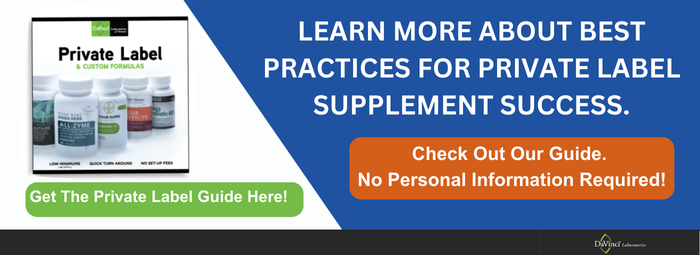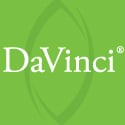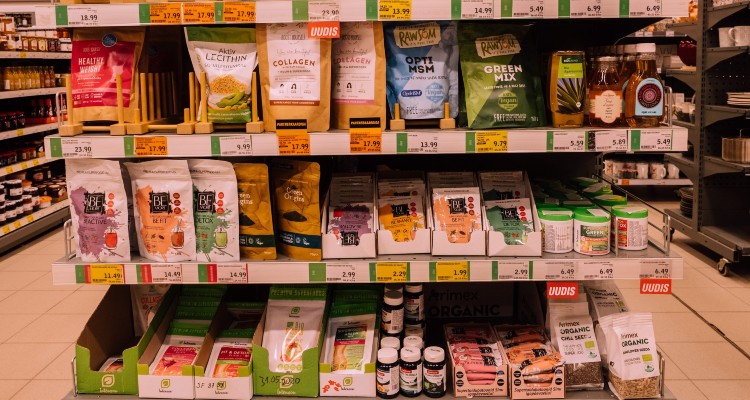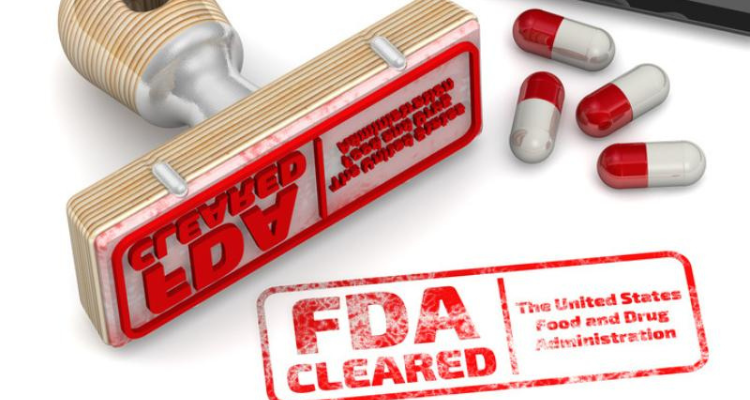If you’ve purchased supplements and wondered about this label statement —These statements have not been evaluated by the Food and Drug Administration. This product is not intended to diagnose, treat, cure, or prevent any disease— you’re not alone.
Every day, more people are choosing nutraceuticals as their first line of defense for optimal health. But when it comes to selling nutritional supplements, people have a lot of questions, like what exactly does that label statement mean, and do you need FDA approval?
To answer the first, when a company claims that a dietary supplement product will have an impact on the structure or function of the body they must include this disclaimer adjacent to the claim. The disclaimer is meant to clarify to the customer that the product will not diagnose, treat, cure, or prevent any disease.
Does the FDA Regulate Nutritional Supplements?
FDA (U.S. Food and Drug Administration) is a federal agency responsible for regulating products used by the public for health-related purposes, such as pharmaceutical drugs, cosmetics, food products, tobacco, dietary supplements, and even medical devices. The exact role and oversight carried out by FDA vary somewhat among these industries.
When it comes to supplements, FDA is a regulatory agency that dictates which claims are appropriate for supplement companies to make about their products. For example, supplements are categorized as food products—so while the FDA doesn’t control supplement sales, supplements must be compliant with regulations regarding labeling and manufacturing.
To ensure safety, FDA requires companies to follow Good Manufacturing Practices (GMPs), which are enforced through inspections and grant authority to prosecute, seize, and remove products that do not meet regulations or are considered dangerous.
FDA does not license individual supplement products for sale. However, dietary supplement companies are only permitted to sell products containing ingredients currently in the food supply or used in dietary supplements prior to 1994, when the Dietary Supplement Health and Education Act was passed. Included in this law were very specific labeling requirements that include the statement of identity, statement of net quantity of contents, nutritional facts, list of ingredients, and business information. The first two requirements in this list are ostensibly necessary for consumer protection from fraud. They contribute to a comprehensive picture of a product and manufacturer.

Statement of Identity
The statement of identity for dietary supplements is the name that appears on its label. The product must include the word “dietary supplement” before the name itself; however, this can change depending on what type of supplement it is, such as an herbal supplement, calcium supplement, bee pollen supplement, or cod liver dietary supplement. This statement of identity should be as prominent as the brand name or any other label information.
Statement of Net Quantity of Contents
The net quantity of contents for dietary supplements refers to the required inclusion of a statement that informs consumers of the amount of dietary supplement that is in the bottle or package they are purchasing. Regulations delegate the bottom 30% of the label to this statement, and contents can be displayed as a weight or numerical count, e.g. “100 tablets.”
These requirements help ensure that supplement consumers understand exactly what they are buying. Along with this, manufacturers must also include all ingredient and business information, such as the name and place of the manufacturer, packer, or distributor.
How Else Can We Make Sure that Dietary Supplements are Safe?
FDA enforcement is limited, and with so many dietary supplement companies out there, it isn't easy to know which brands you can trust. Since FDA audits for GMP's only happen every so often, it is crucial to look for Third-Party certifications, which ensure the company is following the certifications' high standards as well as the GMP's put in place by FDA.
FDA regulations can be difficult to navigate—and this is just one reason why private labeling supplements removes a great deal of stress. Providers like DaVinci Laboratories offer products that are already ensured for quality and ready for market. As a private label customer, you can launch your supplement brand with confidence that you are in good hands.
FDA and Supplements Main Takeaways:
- The FDA does not approve individual dietary supplements, much like how it does not approve individual food brands. Instead, all authorized dietary ingredients must meet strict regulations for their use.
- The FDA does closely monitor nutritional supplement manufacturing and labeling and inspects companies to ensure compliance with regulations.
- Supplement manufacturers are responsible for complying with FDA regulations, and private label supplements can greatly simplify the process for your practice.
You need to know what constitutes a safe, high-quality product. Though dietary supplements like vitamins, minerals, and herbal combinations aren't individually approved by FDA, they still must follow stringent regulations. FDA enforcement authority ranges from product seizure to revoking facility registration and, therefore, the company's ability to manufacture and sell products. Make sure you have an in-depth understanding of FDA regulations or talk with your private label supplier for more detailed information.












.jpg)






